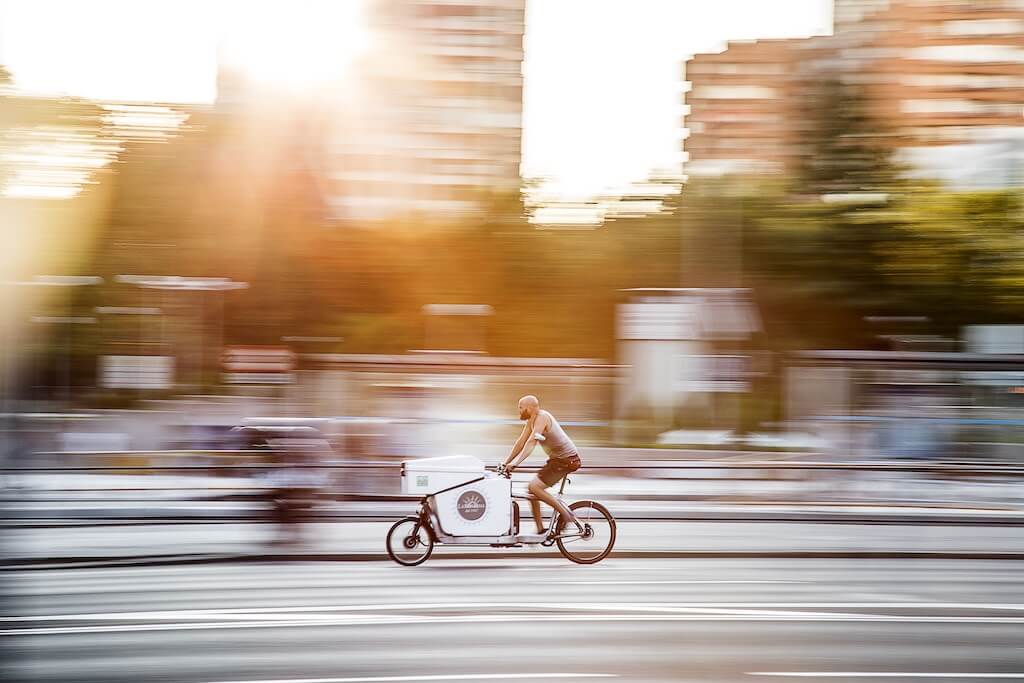Autumn Gear Guide
Find inspiration in our Gear Guide that will keep you out on your bike through wind or rain.
Download NowThe concept of a “15-Minute City” has gained traction in recent years as a vision for more sustainable, livable, and accessible urban environments. The idea is simple: create cities where people can access their daily needs, such as work, schools, shopping, and recreation, within a 15-minute travel time by walking, biking, or using public transit. […]
The concept of a “15-Minute City” has gained traction in recent years as a vision for more sustainable, livable, and accessible urban environments. The idea is simple: create cities where people can access their daily needs, such as work, schools, shopping, and recreation, within a 15-minute travel time by walking, biking, or using public transit.
A 15-minute city is a term coined by Paris-based urbanist Carlos Moreno. It’s used to describe an idyllic neighborhood where everything one needs, whether work, food, housing, cultural activities, or education, is within easy reach.
The 15-minute city concept first came to prominence in Paris, where it was championed by the city’s mayor, Anne Hidalgo. In her efforts to make Paris a more livable, sustainable, and equitable city, Mayor Hidalgo embraced the 15-minute city concept and made it a central component of her vision for the city’s future. Paris has since become a model for other cities looking to implement similar plans.
Among the various transportation options available, bicycles are particularly well-suited to support the concept of a 15-Minute City for the following reasons:
Bicycles are a quick and efficient mode of transportation for short to medium distances. With dedicated bike lanes, paths, and routes, cyclists can bypass traffic congestion and reach their destinations faster than cars or public transit, especially during peak hours. In a 15-Minute City, where everything is within close proximity, bicycles can provide a convenient and time-saving way to get around.
Bicycles are a zero-emission mode of transportation, meaning they do not produce harmful greenhouse gases or contribute to air pollution. They also require minimal resources to manufacture, operate, and maintain, making them a sustainable and environmentally-friendly transportation option. In a 15-Minute City, where the emphasis is on reducing carbon footprint and promoting sustainable living, bicycles are a perfect fit.
Cycling is a great form of exercise that offers numerous health benefits. Regular cycling can improve cardiovascular fitness, increase muscle strength and flexibility, boost mental well-being, and reduce stress. In a 15-Minute City, where the focus is on creating healthy and active communities, bicycles can play a crucial role in promoting physical activity and improving public health.
Bicycles can contribute to creating more livable and vibrant urban environments. They take up less space than cars, reduce noise pollution, and create a human-scale, people-friendly atmosphere. Bicycles also promote social interaction, community engagement, and a sense of place, as people can easily stop, interact, and explore their surroundings while cycling. In a 15-Minute City, where the emphasis is on creating livable, people-centered neighborhoods, bicycles can play a key role in enhancing the urban quality of life.

Bicycle delivery
Bicycles can also benefit local economies in a 15-Minute City. By promoting active transportation and reducing reliance on cars, bicycles can support local businesses, increase foot traffic, and enhance the vitality of commercial areas. Additionally, cycling can save money on transportation costs, leaving more disposable income to be spent locally. Bicycles can also create job opportunities in bicycle manufacturing, sales, repairs, and related services, contributing to local economic development.
Bicycles are a highly accessible mode of transportation that can be used by people of all ages, abilities, and socioeconomic backgrounds. Bicycles do not require a driver’s license, insurance, or expensive fuel, making them a cost-effective and inclusive mode of transportation. In a 15-Minute City, where the goal is to ensure that everyone has equal access to essential services and amenities, bicycles can provide an equitable and accessible transportation option.
Bicycles are aligned with the goals of sustainability and climate action, as they contribute to reducing greenhouse gas emissions, air pollution, and congestion. In a 15-Minute City, where the focus is on creating sustainable and climate-friendly communities, bicycles can be a powerful tool to achieve these objectives. By promoting cycling as a viable transportation option, cities can reduce their carbon footprint, mitigate climate change impacts, and promote a greener and healthier way of living.
Find inspiration in our Gear Guide that will keep you out on your bike through wind or rain.
Download Now
Leave a comment